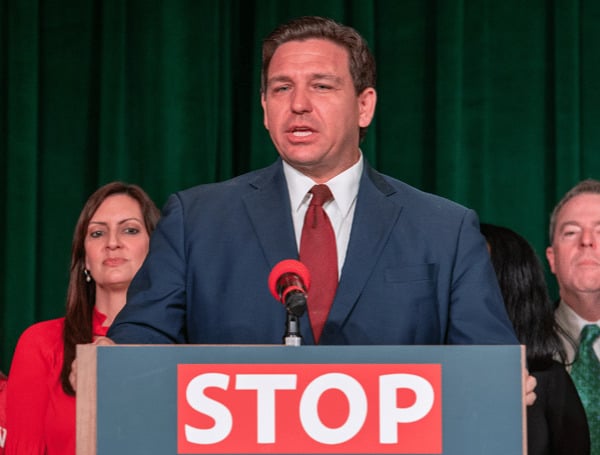A federal judge is expected to decide this week whether to block a new state law that would restrict the way certain race-related concepts can be taught in public schools and in workplace training.
Chief U.S. District Judge Mark Walker heard arguments Tuesday and promised an order “in a couple of days” on the plaintiffs’ request for a preliminary injunction. Though he didn’t make a decision, Walker said he had “grave concerns” about the plaintiffs’ legal standing to pursue blocking the law.
A group of plaintiffs filed the overall lawsuit on April 22, the day Gov. Ron DeSantis signed what he dubbed the “Stop Wrongs Against Our Kids and Employees Act,” or the Stop WOKE Act. Lawmakers passed the measure (HB 7) during this year’s regular legislative session after emotionally raw debates.
The law enumerates concepts that would constitute discrimination if they show up in classroom instruction or workplace training.
For instance, part of the law pertaining to schools says that instruction would be discriminatory is it “compels” students to believe that they “must feel guilt, anguish, or other forms of psychological distress because of actions, in which the person played no part,” committed in the past by members of the same race or sex.
The law is slated to take effect July 1. But attorneys for the plaintiffs argued that if the law isn’t blocked, it will “chill discussions of race,” restricting teachers’ speech and students’ right to access information. The attorneys also contended the measure will restrict employers’ speech by cracking down on what training exercises employers can conduct.
In the news” SCOTUS Strikes Down Law That Banned Taxpayer Funding For Religious Schools
In requesting the injunction, the plaintiffs’ attorneys called the law “vague and overbroad.”
“The logical and intended effect of these broad principles is to chill employers’ and teachers’ speech when they discuss difficult topics related to race and sex. The state is the ultimate arbiter over whether a given statement violates one of these broad principles. When faced with such ambiguity, most teachers and employers will choose to err on the side of caution and either avoid these topics altogether or espouse ideas with which Florida’s conservative politicians agree, rather than risk discipline, loss of funding, or a lawsuit,” the court filing said.
Walker’s concerns about the plaintiffs’ legal standing stemmed, in part, from whether they would be directly affected by the law.
As an example, Tammy Hodo, a consultant who performs diversity-training exercises for employers, is one of the plaintiffs. Walker questioned the plaintiffs’ lawyers about whether Hodo can bring a claim that the law is limiting the speech of employers.
Also among the plaintiffs are University of Central Florida history professor Robert Cassanello and a Nassau County student who is set to begin kindergarten this year.
Charles Cooper, an attorney representing the defendants, argued that the professor’s injury claim is “conjectural” and hypothetical. The penalty for universities violating the law is that they could lose what is known as performance funding.
Walker pointed out that the universities’ penalty is “one step removed” from professors.
The judge also appeared skeptical about the plaintiffs’ claim that the incoming kindergarten student’s right to access information would be affected by the law.
“Here’s what I can see being taught in elementary school,” Walker said, “you need to be kind to everybody.”
Named as defendants in the lawsuit are DeSantis, the state education commissioner, members of the State Board of Education, members of the state university system’s Board of Governors, and Attorney General Ashley Moody.
In the news: Liberals Launch Hollow Arguments About Gov. DeSantis And ‘Shots For Tots’
Walker questioned the plaintiffs’ attorneys about DeSantis being part of the lawsuit, in contrast to people and agencies responsible for carrying out the law.
“I don’t understand how the governor is a proper defendant in this case,” Walker said.
Jesse Wilkison, an attorney representing the plaintiffs, argued that the governor is part of the lawsuit because he oversees all government employees and can direct lieutenants such as the education commissioner.
“Ultimately, what we’re fighting over is whether these ideas take hold or not shouldn’t be decided by the governor,” Wilkison said.
Elizabeth White, another attorney for the plaintiffs, acknowledged Walker’s standing question after the hearing.
“I think that each particular plaintiff has a different burden withstanding. Clearly, (Walker) had some standing issues and questions as it related to some of the parties as opposed to others,” White told reporters. “That’s why we come to court, so we can understand what his concerns are and attempt to address them.”
Walker said he would issue an order on a separate motion by defendants to dismiss the case “a lot less quickly” than he will rule on the injunction request.
Visit Tampafp.com for Politics, Tampa Area Local News, Sports, and National Headlines. Support journalism by clicking here to our GiveSendGo or sign up for our free newsletter by clicking here.
Android Users, Click Here To Download The Free Press App And Never Miss A Story. Follow Us On Facebook Here Or Twitter Here.
Copyright 2022 The Free Press, LLC, tampafp.com. All rights reserved. This material may not be published, broadcast, rewritten, or redistributed.

